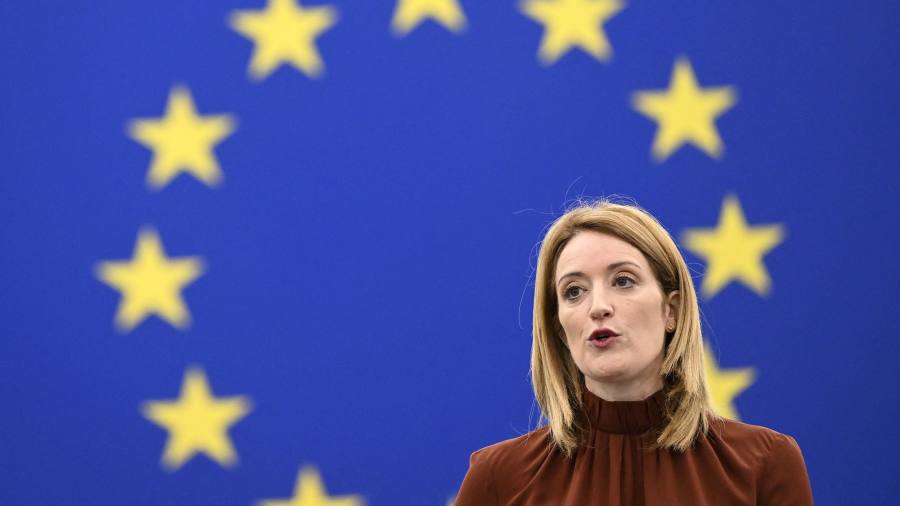Receive free Climate legislation updates
We’ll send you a myFT Daily Digest email rounding up the latest Climate legislation news every morning.
The head of the European parliament has said Brussels’s growing list of climate and industrial regulations is driving voters towards populist parties ahead of EU-wide elections in June.
A “proportionality test” and a proper cost assessment were needed for new regulations, Roberta Metsola said in an interview.
“Euroscepticism grew because the parties of the centre took their voters for granted,” the Maltese politician added, referring to her own European People’s party and the centre-left Socialists and Democrats.
“If the EPP and S&D have lost ground, we have to ask ourselves why. Why have we stopped talking to our businesses? Have we placed being climate ambitious as not being mutually exclusive with economic growth?”
Eroding living standards because of high inflation, concerns over immigration and the cost of climate change policies, such as replacing gas boilers, are fuelling a rightward tilt among voters, according to analysts.
Polls point to big gains for hard-right parties such as Alternative for Germany and Giorgia Meloni’s Brothers of Italy as well as losses for the Greens, Liberals and other centrists. However, the four big pro-European groupings are likely to retain a majority.
Metsola’s EPP recently called for a moratorium on regulation and opposed a plan to improve biodiversity by rewilding some farmland.
But she said her latest comments reflected the view of members as a whole and that parliament’s response was based on public pressure.
“We don’t do a proportionality test. We don’t ask once it is implemented, how much will it really cost?” she said.
“This will be my fifth European election. And it’s a question we get asked every time: ‘You talk of big regulatory projects, but you don’t cost them.’”
She added that Slovakian journalists had told her tighter rules for combustion engine emissions, known as Euro 7 standards, were likely to cost jobs. Carmakers have said that with the sale of petrol and diesel-powered cars and vans being banned in the EU from 2035, the new rules were pointless.
However, some nature policies were popular among the electorate, she said, adding that the European Commission should publish its proposal to improve farm animal welfare, which came in response to a petition by more than 1mn European citizens.
She also called on Brussels to loosen its fiscal rules so that governments can maintain spending on public services and infrastructure.
“Prime ministers say I cannot beat an ever-growing Eurosceptic population if I find myself in a situation where the bureaucracy is bearing down on me,” she said.
Read the full article here




